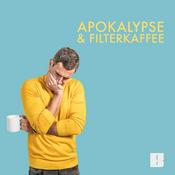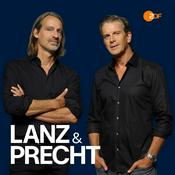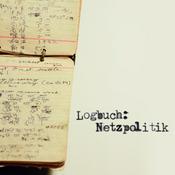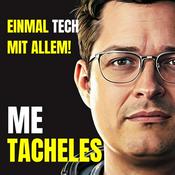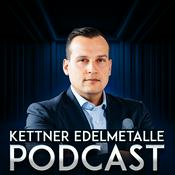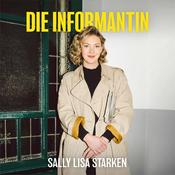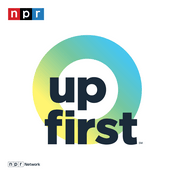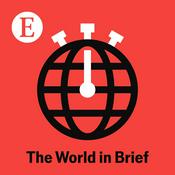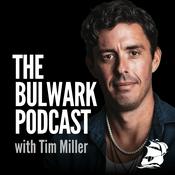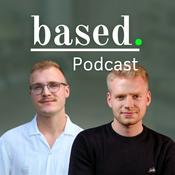488 Episoden
- Boxing is on the rise with streaming giants now broadcasting major fights and heavy investment from Saudi Arabia reshaping the sport. But for boxers facing money or health problems out of the ring, help is not always easy to come by. As File on 4 Investigates discovers, some in boxing are now working towards a unified approach across the sport, which would help fighters throughout their careers, but can they make it work?
Reporter: Kal Sajad
Producer: Ashley Kennedy
Additional research: Clive Hammond
Technical Producer: Cameron Ward
Production Co-ordinators: Ellis Goodwin & Tim Fernley
Editor: Tara McDermott
Details of organisations offering help and support for the issues raised are available at bbc.co.uk/actionline - Virtual Wards, where patients receive hospital care at home, were heralded as one solution to help deal with the bed crisis in NHS hospitals. The system is popular with patients and has had successes, but some health boards in England have put the brakes on and the number of virtual beds has stalled in the last 12 months. Jane Deith meets the doctors on the front line of providing care to patients with acute conditions in their own homes and the people who benefit from being able to stay out of hospital.
Supporters of virtual wards or hospital at home say it's better for patients, saves money and prevents a significant number of hospital admissions. But some doctors question whether the system can make much difference unless it is introduced at scale.
District nurses are the original method of keeping people well and out of hospital. But in the last fifteen years, their number in England has almost halved - down 43 percent. Jane goes out with one nurse on a shift to see the work they do and hears from nurse leaders about concerns that district nurses are overstretched, leading to concerns about patient care.
Reporter: Jane Deith
Producer: Paul Grant
Technical Producer: Cameron Ward
Production Co-ordinator: Tim Fernley
Editor: Tara McDermott - File on 4 Investigates: Missing Billions examines the changes to the financial system over the past ten years, including bank branch closures and the digitisation of the finance industry which has led to many financial assets being lost, mislaid or forgotten. It examines the scandal of £100 billion belonging to you and me, but kept by Britain's trusted financial institutions.
The documentary solves the mystery of some missing church silver, helps a frustrated ambulance worker hunt an elusive pension and hears from the valiant individuals leading the charge to make changes to the finance industry.
Featuring contributions from: Steve Webb (Former Pensions Minister), Helen Boyd (Reclaim Fund Ltd), Derek French (Campaign for Community Banking Services), Duncan Stevens (Asset Tracing Service Gretel), Tom Storey (Vaults Group), Les Clarke (Assets Recovered Ltd) plus responses from the NHS, South East Coast Ambulance Service, Santander UK and Lloyds bank.
Presenter, Simon Barnes
Readings, Russell Bentley, Olivia Mace
Research, Bethanie Depreaux
Editor, Ross Burman
Producer, Ashley Golder
Executive Producer, Kris Dyer
A Rakkit production for BBC Radio 4 - When a woman reported an allegation of rape against a serving police officer, she found herself in the dock, charged with perverting the course of justice. File on 4 Investigates hears how she went from being a potential victim to a suspect accused of lying.
Over the past decade, hundreds of rape complainants in England and Wales have been investigated for making false allegations. The programme examines when and why the justice system turns on those who come forward, and asks whether the safeguards meant to protect potential victims are being properly applied.
Producer: Hayley Mortimer
Presenter: Rebecca Woods
Technical Producer: Richard Hannaford
Production Co-ordinator: Tim Fernley
Editor: Tara McDermott
Details of organisations offering help and support for the issues raised are available at bbc.co.uk/actionline - File on 4 Investigates whether the risks associated with the popular hair loss drug Finasteride are understood, after a 2024 review by UK drug safety regulator the MHRA prompted by a lack of awareness of the drug’s side-effects. Finasteride’s most common side effects are reduced libido and erectile dysfunction, affecting more than one in a hundred patients. Some people also report low mood and suicidal thoughts.
As Johnny I'Anson discovers some hair loss clinics are failing to adequately warn customers at the consultation stage of the sexual side effects assocated with Finasteride.
The drug, which is highly effective at halting hair loss, is only available by private prescription for hair loss purposes.
But File on 4 Investigates discovers influencer accounts on the social media site TikTok promoting finasteride, also offering discounts for Finasteride with Manual, a popular UK men's health company. A lawyer expert told us that the videos we found constituted advertising.
As a prescription-only medicine, it’s illegal to advertise finasteride to the public like this. This programme flagged the videos to TikTok, and they have since been removed. The company has also banned three of the accounts promoting the drug, saying they breached its rules. Manual said it was not involved in the making of the influencers’ videos.
Presenter: Johnny I'Anson
Producer: Rob Byrne
Technical Producer: Richard Hannaford
Production Co-ordinator: Tim Fernley
Editor: Tara McDermott
Details of organisations offering help and support with mental health are available at bbc.co.uk/actionline
Weitere Nachrichten Podcasts
Trending Nachrichten Podcasts
Über File on 4 Investigates
News-making original journalism documentary series, investigating stories at home and abroad.
Podcast-WebsiteHöre File on 4 Investigates, RONZHEIMER. und viele andere Podcasts aus aller Welt mit der radio.de-App
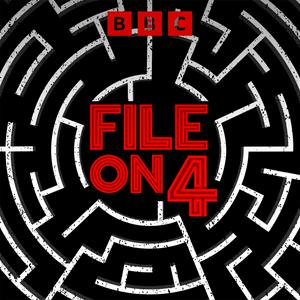
Hol dir die kostenlose radio.de App
- Sender und Podcasts favorisieren
- Streamen via Wifi oder Bluetooth
- Unterstützt Carplay & Android Auto
- viele weitere App Funktionen
Hol dir die kostenlose radio.de App
- Sender und Podcasts favorisieren
- Streamen via Wifi oder Bluetooth
- Unterstützt Carplay & Android Auto
- viele weitere App Funktionen


File on 4 Investigates
Code scannen,
App laden,
loshören.
App laden,
loshören.



